In this article
We provide policymakers with step-by-step guidance on how to use VCMI’s Access Strategies Toolkit, designed to help governments establish the policies and processes needed to promote an enabling environment for high-integrity voluntary carbon markets (VCMs) to flourish.
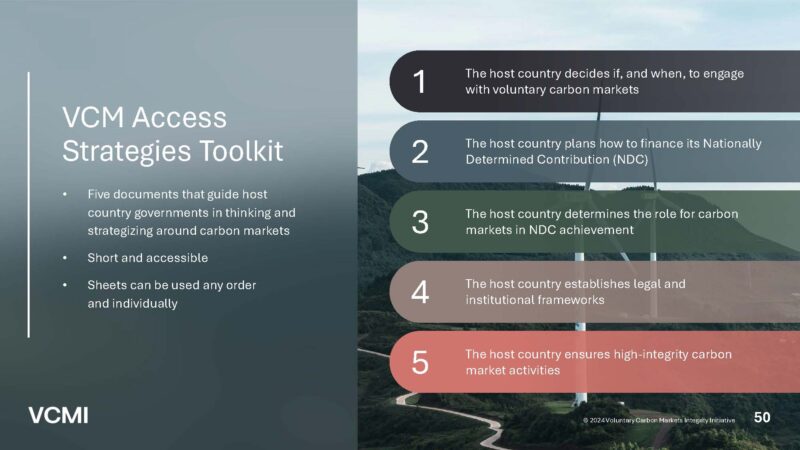
Contents
Background
Commitments to climate targets such as net zero are increasing and, with that, the demand for high-quality carbon credits from credible projects. Unlocking the potential of carbon finance to help countries achieve climate and economic prosperity requires both political willpower and coordinated capacity building across the Article 6, compliance, and VCM landscape.
VCMI supports policymakers in countries hosting carbon market projects to develop domestic high-integrity carbon markets through our Access Strategy program. VCMI’s Access Strategies Toolkit is the primary knowledge product of the program, aiming to help governments to create an enabling environment to meet this growing demand, and unlock the benefits of thriving, high-integrity VCMs for their country. The toolkit guides a clear strategy for countries to harness the power of VCMs as instruments to deliver ambitious climate and economic goals.
How to use the toolkit
The decision sheets in the Toolkit can be read and used in any order depending on specific country interests and/or existing levels of readiness. A suggested flow is illustrated below. Each decision sheet addresses one broad topic, which is then broken down into policy-relevant questions.
 VCM Access Strategy Toolkit
VCM Access Strategy Toolkit
The Toolkit sets out key considerations for host countries to aid decisions on whether, why, how, and when to engage with VCMs.
The VCM Access Strategy Toolkit is also available in Français, Português, or Español.
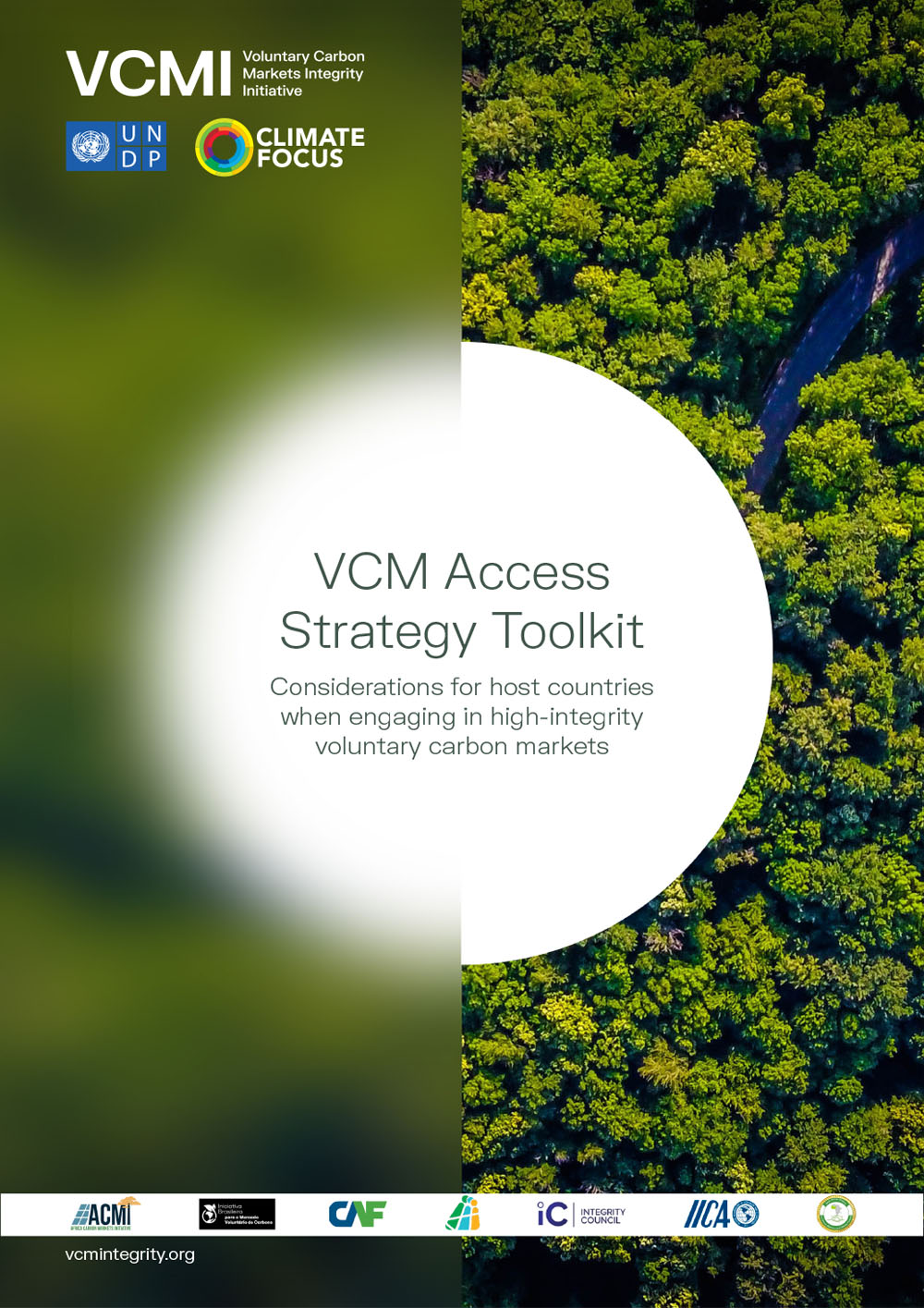
Step 1: Deciding if, and when, to engage with voluntary carbon markets
Voluntary carbon markets provide opportunities to host countries, but their complexity presents a major barrier to engagement. First, map out current VCM activities and determine the role the host government will play. Host countries can create certainty by clarifying the role of carbon markets – compliance and voluntary – in the context of national climate policies, ensuring that voluntary activities align with national priorities, and follow social and environmental safeguards.
Host governments can choose to act as market regulators, implementors, and/or facilitators.
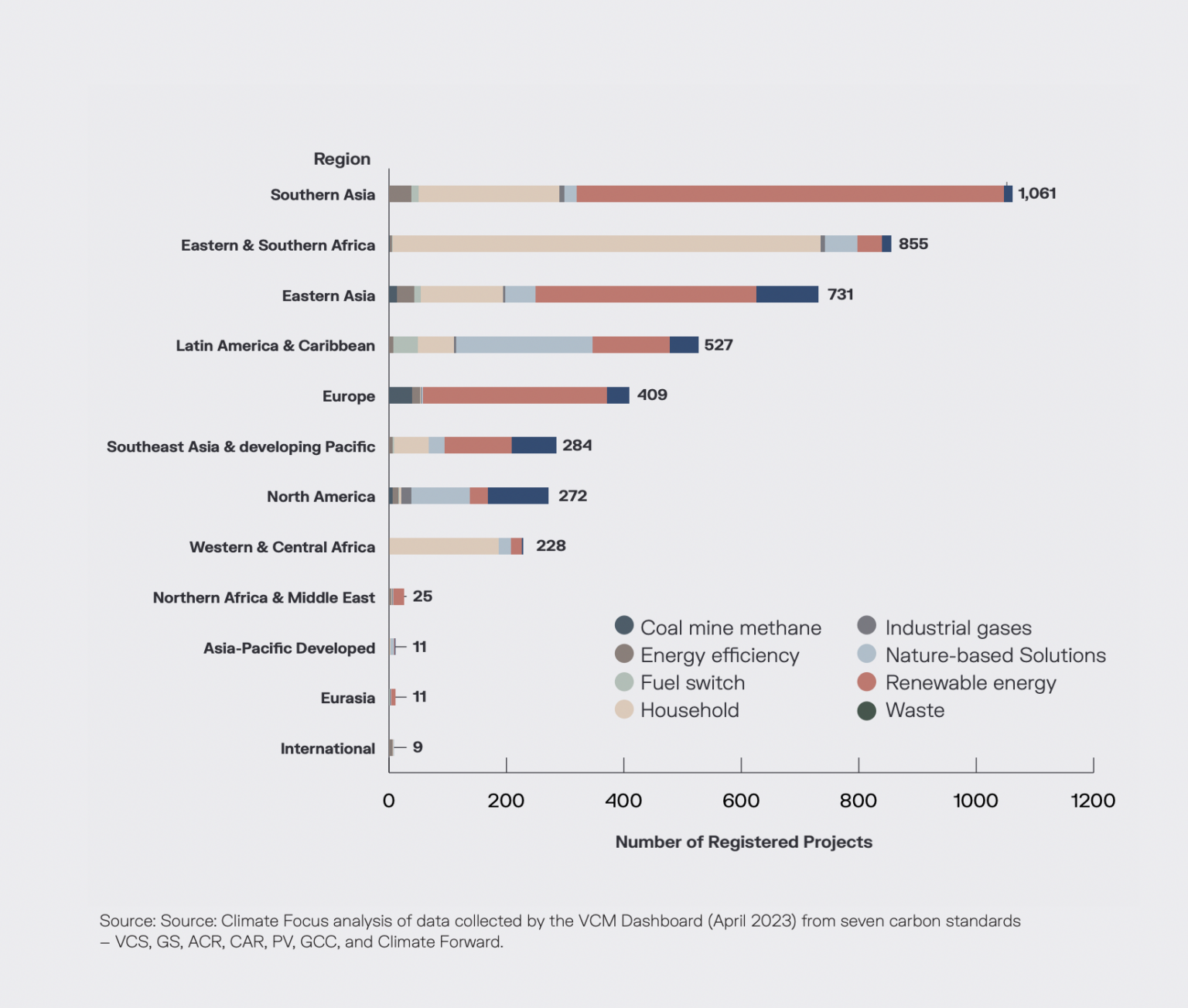 Registered VCM projects per region
Registered VCM projects per region
Step 2: Determine finance needs to implement your Nationally Determined Contribution (NDC)
Countries should make their financing needs as clear and specific as possible, and identify the finance instruments available, including whether VCMs can play a role to finance mitigation activities. Carbon finance is a sub-category of climate finance, linking payments to the generation of emission reductions and removals. Making financing needs as clear and specific as possible can mobilize investment.
Steps to develop an NDC financing strategy:
Step 3: Determining the role for carbon markets in NDC achievement
Host country governments decide whether and how carbon market transactions contribute to their NDCs. Clarifying when emissions reductions and removals count towards the host country’s NDC achievement provides certainty to investors. Countries must consider double counting and double claiming, developing a strategy on corresponding adjustments (authorizations).
Step 4: Legal and institutional matters
The host country needs to ensure that the relevant legal frameworks are in place to facilitate the deployment of finance. This means clarifying carbon rights and addressing legal and regulatory issues, including which ministries are responsible for what. For example, Article 6 approvals and authorizations, monitoring reporting and verification requirements, and safeguards.
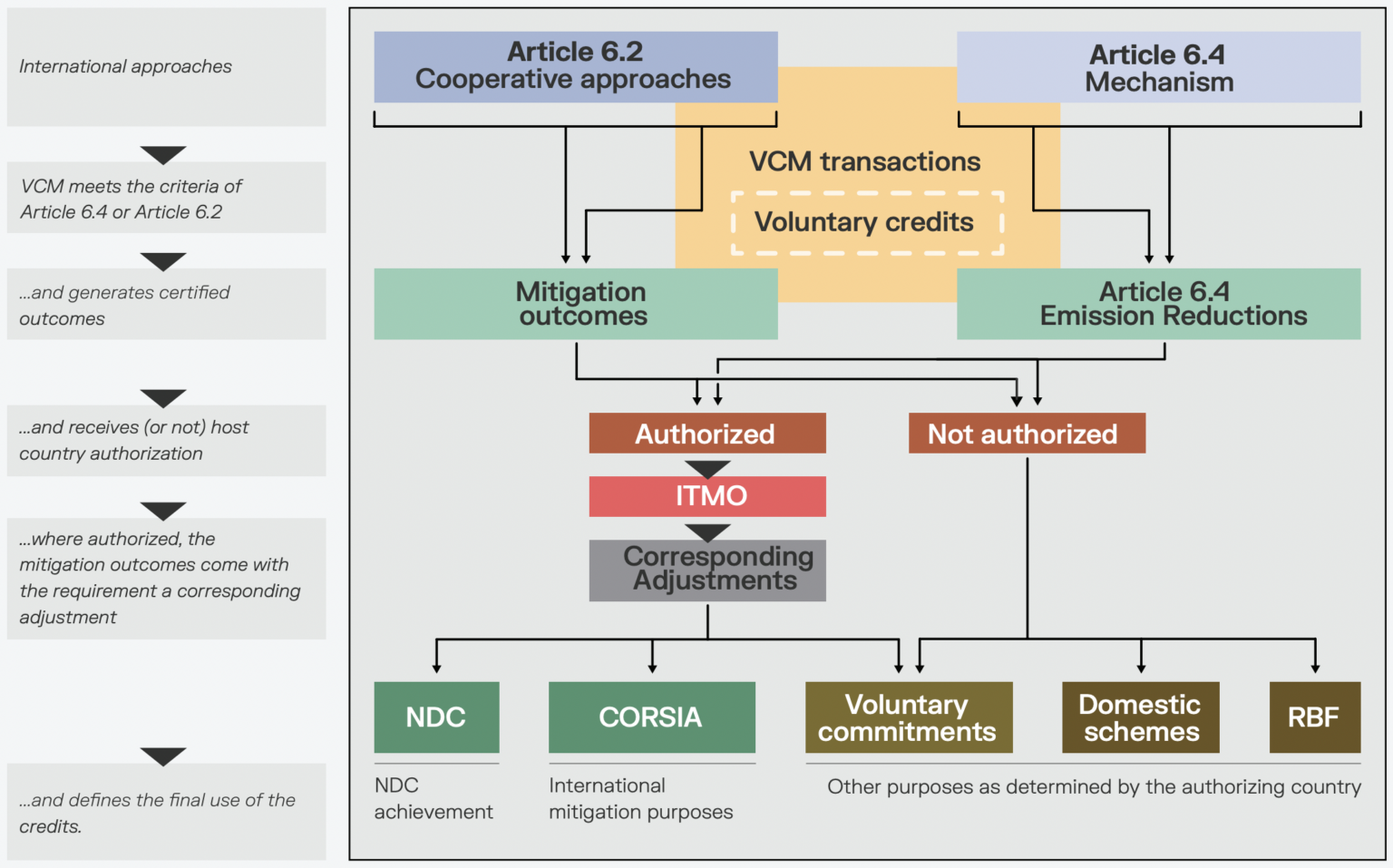 The generation and use of carbon credits after COP26
The generation and use of carbon credits after COP26
In land-use and nature-based solutions projects, establishing carbon rights can be significantly more complicated and politically sensitive:
Step 5: Ensuring high-integrity carbon market activities
VCM activities should be aligned with host country policy, and ensure the high-integrity supply and use of carbon credits. This means following best practice from independent international initiatives to;
- Ensure high-quality supply of carbon credits: The Integrity Council for the Voluntary Carbon Market (ICVCM) have defined criteria (the Core Carbon Principles) to distinguish the supply of high quality carbon credits.
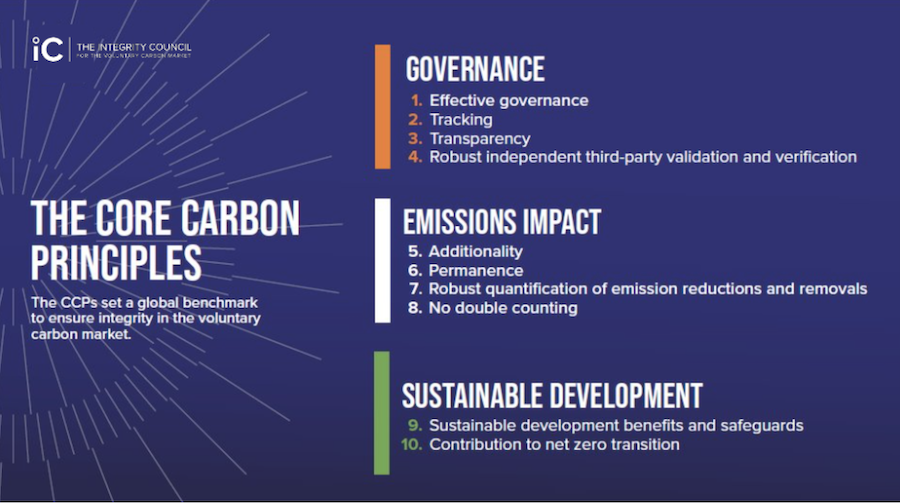
- Ensure high-integrity use of carbon credits: The VCMI Claims Code of Practice identifies the steps that corporates should follow when using carbon credits and making climate claims.
In conclusion, the VCM Access Strategies toolkit is an important guidance tool that can be a helpful resource for governments as they consider how to most effectively engage with high integrity voluntary carbon markets. The toolkit is available for download in English, French, Portuguese and Spanish here.
